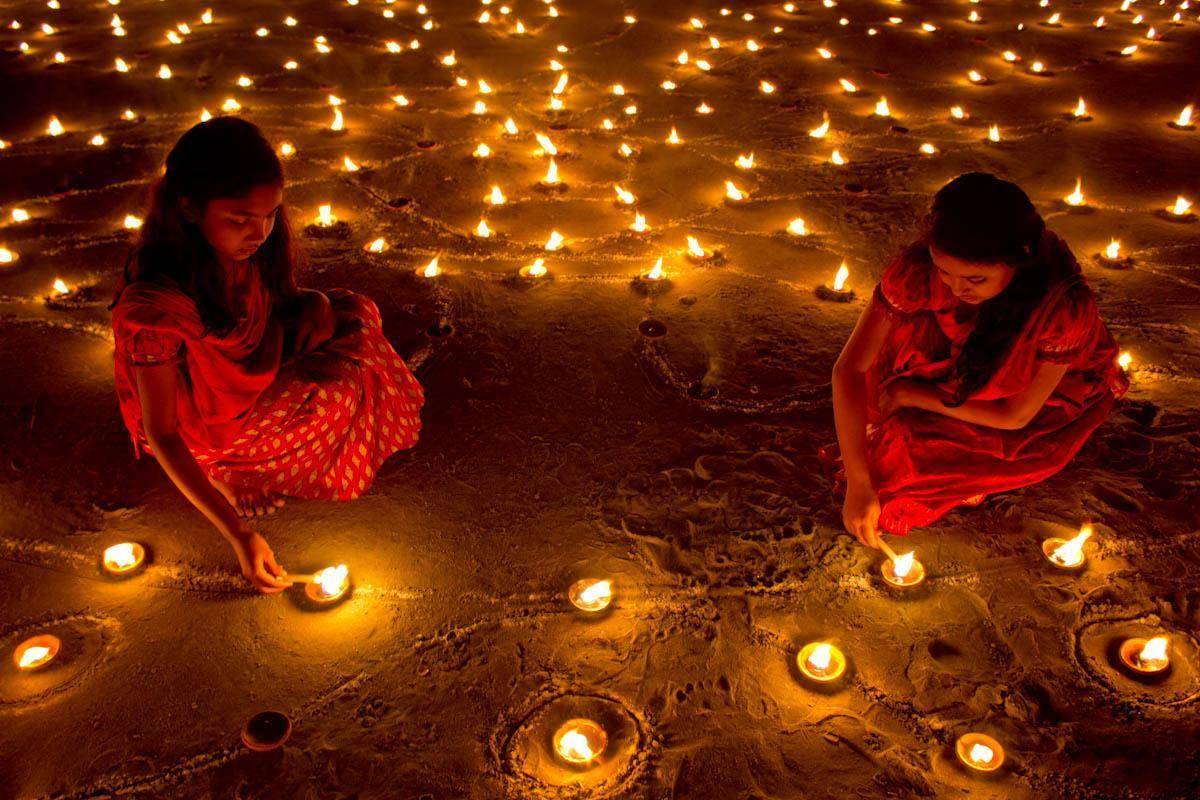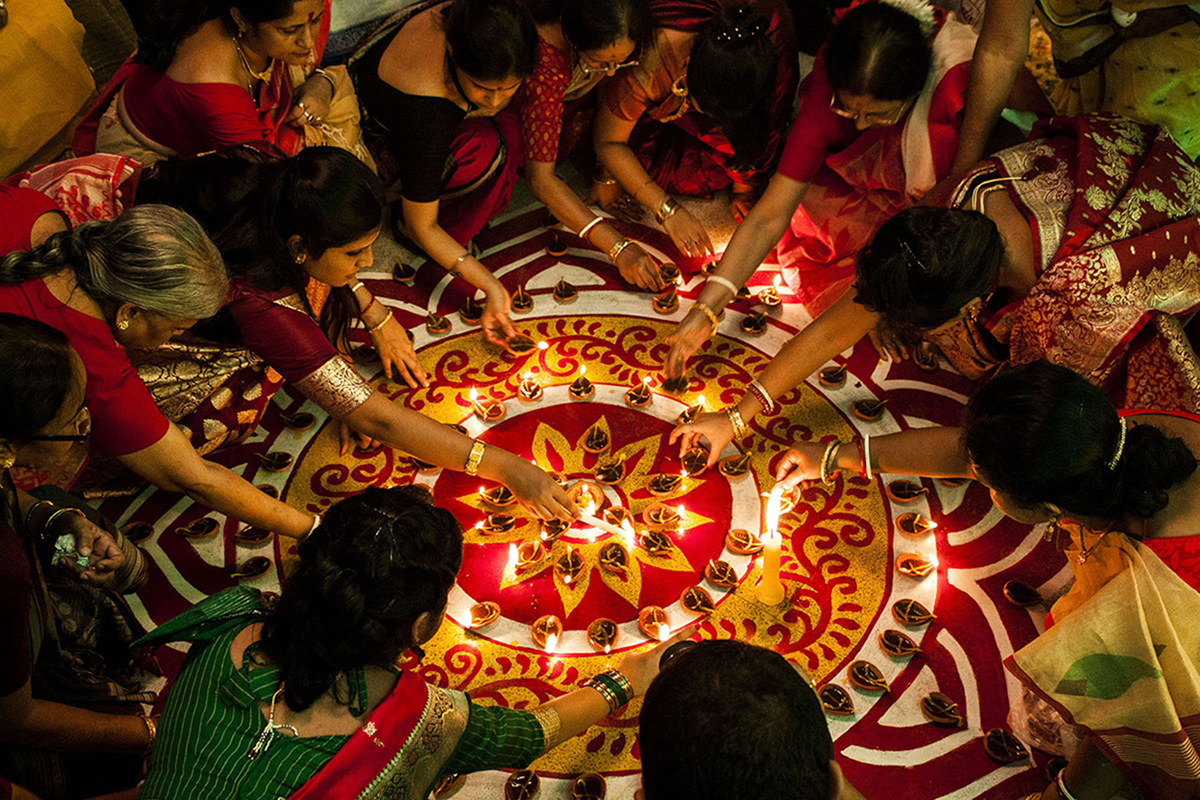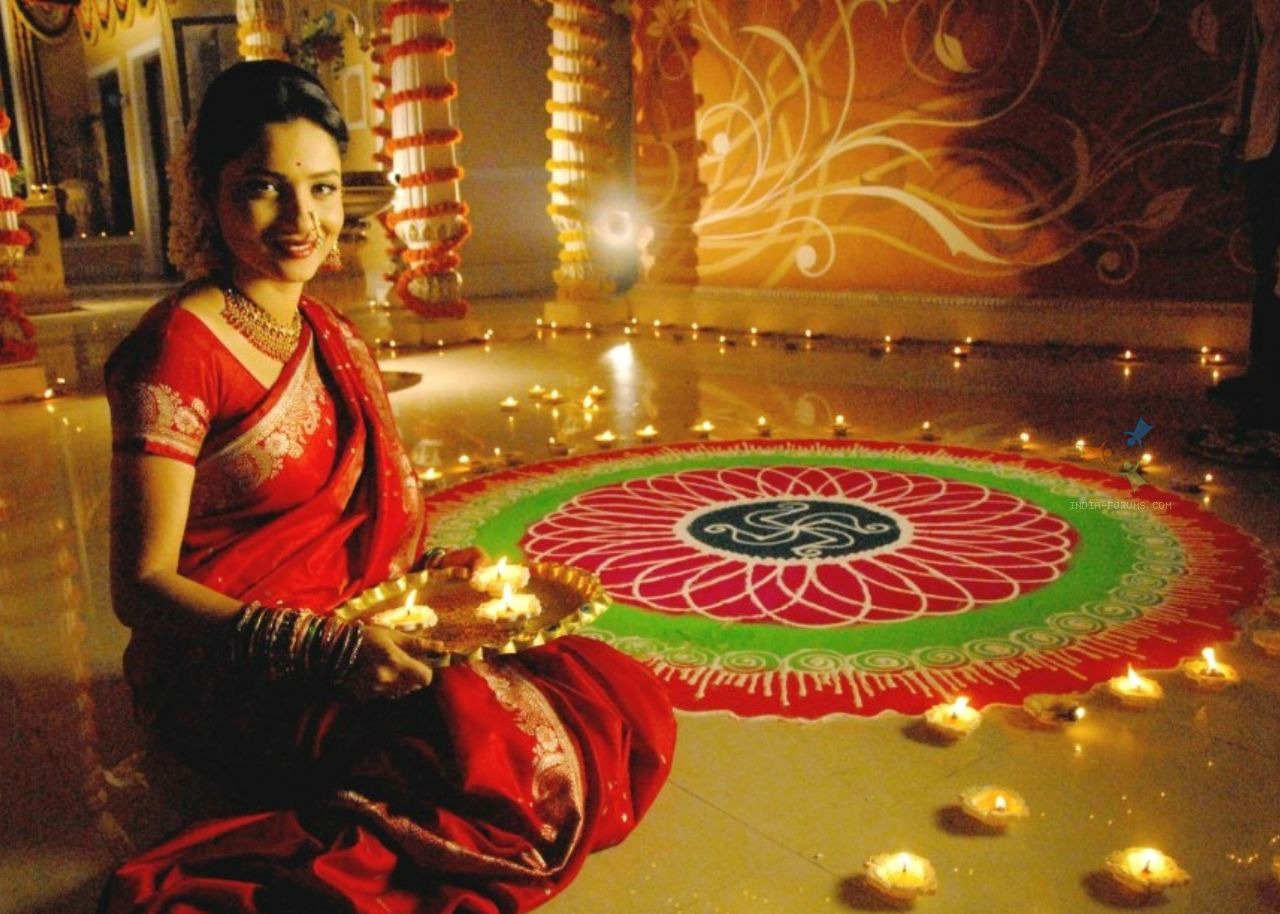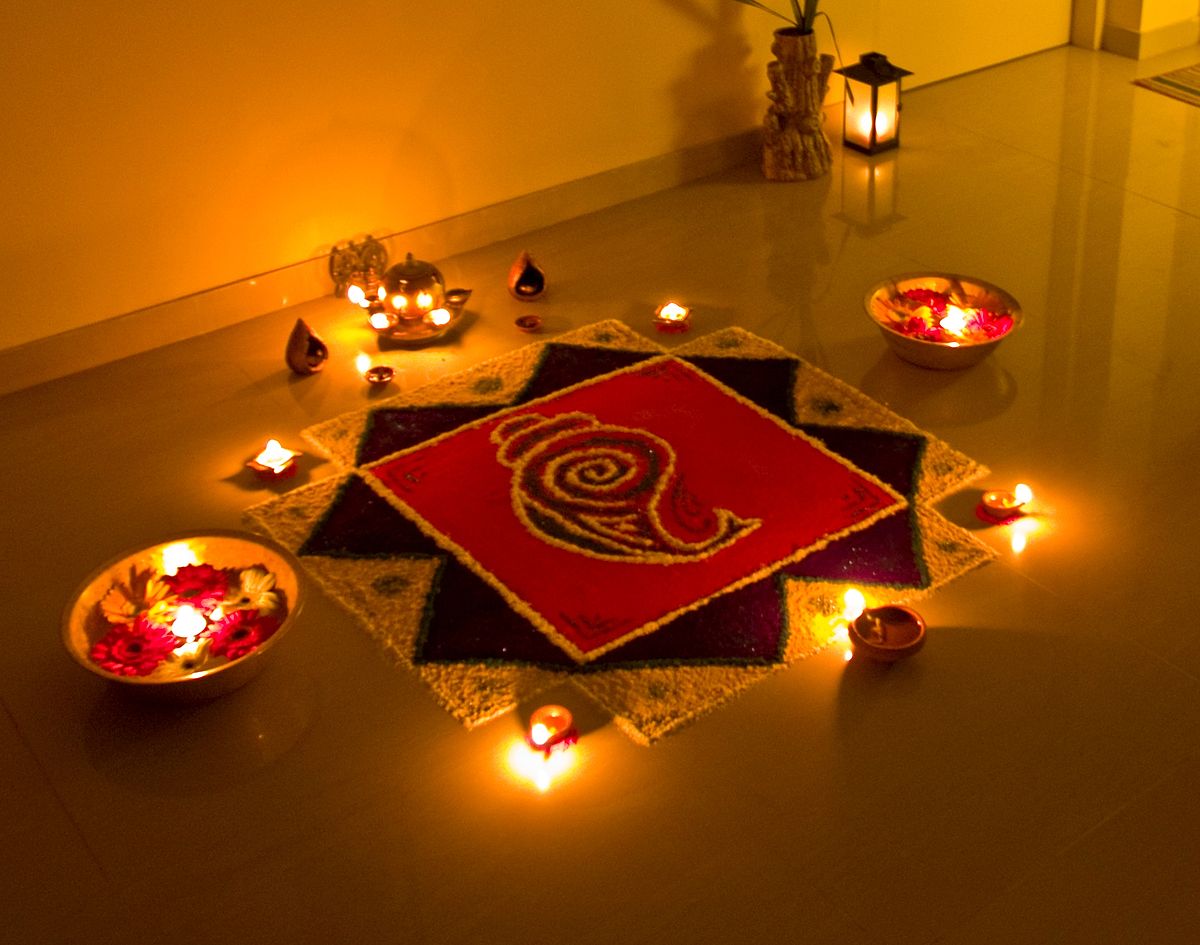Diwali celebrations across India
Diwali, the festival celebrated with most fervour and zeal in India, marks the return of Lord Rama to Ayodhya after 14 years of exile. But for some, it is the one day when Goddess Kali descends on Earth. This festival of lights illuminates the night sky over the entire Indian subcontinent but different regions render different and unique flavours to the festival, owing to the various mythological stories and historical facts associated with it.
North India
The Northern part of the country celebrates the festival on the new moon day in the Kartik season when the nights are darker than usual. The day marks the auspicious return of Lord Rama, wife Sita and brother Laxman to the city of Ayodhya after 14 years of exile. Just as the residents of Ayodhya lit diyas to welcome their Lord home, people celebrate the homecoming with diyas, candles, lights and firecrackers. New clothes are worn and sweets are exchanged amongst friends and family. In many parts, Ramlila precedes the celebrations when a dramatic representation of the story of Lord Rama and his victory over Ravana is played out till Dussehra. Cleaning, whitewashing and redecoration of houses are done prior to Diwali in a bid to please Goddess Lakshmi. In some parts, gambling on the day of the festival is also considered auspicious.

The state of Bihar also celebrates Chhoti Diwali a day prior to Diwali. On this day, a fast is observed and 21 diyas are lighted during the night time.
In Punjab, Sikhs can also be seen celebrating and the Golden Temple in Amritsar offers a visual treat as it is exquisitely lit up and decorated. The Sikhs celebrate the day due to a different reason though. It is said that on this day, the 6th Sikh guru, Guru Hargobind ji managed to escape from Gwalior Fort with 52 other prisoners. Since then, it has been celebrated as the ‘Bandi Chhod Diwas’. Nevertheless, the very fact that two different religions hold the day auspicious is a reason to rejoice!
West India
The Western part of the country celebrates the festival of Diwali over four days.
- Vasubaras- In Maharastra, on the first day of celebrations, an Arti of cows and calves is performed. This celebrates the pious love between a mother and child.
- Dhanteras- The second day holds significance for the businessmen and traders who worship Goddess Lakshmi and open new account books.
- Narakachaturdashi- On this day, people take a scented oil bath and visit a temple in the morning. Later during the day, a feast called ‘Faral’ is organised.
- Diwali- The celebrations end on the day of Diwali with Lakshmi Pooja and lighting up of diyas and crackers.

In Gujarat, Diwali is also considered to be the beginning of a new year and people wish new beginnings for each other. Bhau Beej, a festival similar to Rakhi is also observed as a part of the 4-day long celebrations.
East India
In Eastern India, Goddess Lakshmi and Durga are worshipped before the festival of Diwali. Diwali is the time when Goddess Kali is worshipped. Temporary pandals are set up and the idols of the Goddess are kept there. For people in West Bengal, Diwali is the one day in a year when the Goddess descends on Earth. It is also a night dedicated to ancestors and forefathers-‘Pitripurush’. Diyas can be seen lit at the end of tall poles and are believed to guide their souls to Heaven.

In Odisha, a similar ritual known as Kaunriya Kathi is performed to honour the ancestors by burning jute sticks while pointing them towards the sky to invite their forefathers to descend from Heaven and bless them.
South India
The legend associated with Diwali is a bit different towards the South. The festival is a celebration of the killing of Narakasura and the festival falls during the Tamil month of Aipasi. A day prior to Diwali, the oven at home is cleaned and smeared with lime. Religious symbols are drawn on it and it is filled with water to be used the next day for oil bath. On the day of Diwali, an oil bath is taken, new clothes are worn and firecrackers are lighted. An oil bath is taken as it is believed that Lord Krishna took one to clean Narakasura’s blood after killing him.

A unique tradition of Thalai Deepavali is still preserved in the Southern states following which, newly wedded couples celebrate the first Diwali after their marriage at the bride’s parents’ house and evoke blessings of all the elders and Lord Krishna.
No matter what religious significance is attached to Diwali, it widely signifies the victory of good over evil, light over darkness and offers hope of a prosperous and happy future to everyone. No wonder the festival’s popularity has spread beyond the country’s borders and it is now celebrated in many other parts of the world as well.

